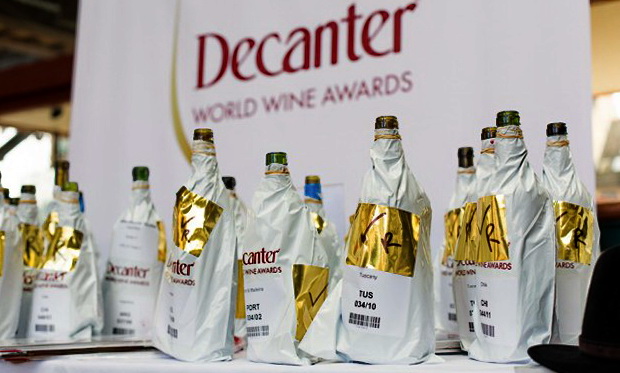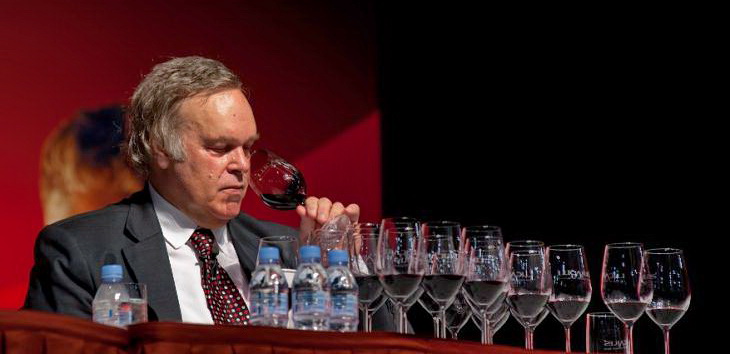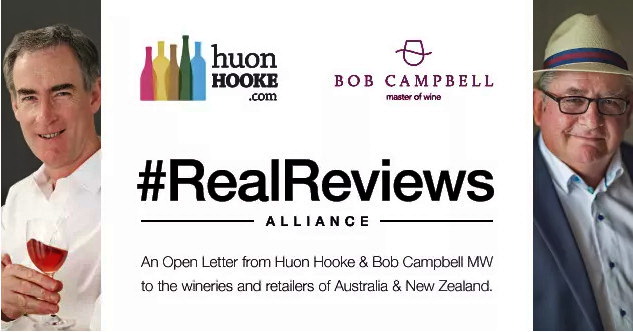‘If a wine didn’t make you retch, it got a Commended.’
I just finished an interview with ABC’s Radio National for a program they’re making on this issue that will go to air via Fran Kelly’s breakfast program next week, under the title Australian wine industry questions integrity of wine ratings.
In preparation, I pulled a bunch of insights together from the posts I’ve penned on this subject over the last couple of years. The short story is that wine reviews and wine shows have become Big Business, since serious money has turned the once genteel art of wine writing into a huge sham. The last 15 years have seen inflated scores become common currency in the wine business, in the UK, the US and Australia.
Uncommon Generosity
 In 2015, the Decanter World Wine Awards (DWWA) and the International Wine Competition (IWC) judged some 30,000 wines between them and handed out close to 20,000 awards (trophies, medals and commendations).
In 2015, the Decanter World Wine Awards (DWWA) and the International Wine Competition (IWC) judged some 30,000 wines between them and handed out close to 20,000 awards (trophies, medals and commendations).
In her article The truth about wine awards: why medals don’t mean great bottles, Daily Telegraph (UK) wine writer Victoria Moore says: ‘Gold, silver, bronze and commended awards do little to help consumers, but add millions to organisers’ coffers.’ She adds that the statistics show ‘an all-shall-have-prizes pass rate that makes complete mugs of trusting drinkers like me and you.’
In case the numbers don’t make the scam clear enough, she quotes a couple of judges who say things like ‘if a wine didn’t make you retch, it got a commended.’ On Twitter, Moore summed it up this way: ‘Congratulations to all 9,694 wines given an award by the IWC this year. Did anyone fail to get a sticker of some sort?’
Follow the Money
Moore also tells us that these competitions are ‘run by IPC Media and William Reed Business Media for whom commercial diversification is imperative as print sales face advertising and circulation challenges. Each charges £99-£120 (paid by a producer or retailer) per wine entered, giving Decanter an entry turnover of £1.84 million. More prizes helps to keep the producers sweet, and the money rolling in.’
The final money spinners are the medal stickers. ‘IWC sells these at £44 (including postage) per roll of 1,000,’ Moore tells us and adds ‘Imagine how much less opportunity for profit – and free advertising for the competitions — there’d be if the bronze and commended levels did not exist. If each commended wine buys just 10 rolls, that secures an additional turnover of £3.2 million.’ More HERE
When 100 Points is not Enough
Jamie Goode is another British wine writer who says, ‘ … the future for wine lovers looks a cloudy one. Unless, that is, consumers can be persuaded to change their buying habits, and wine writers can be persuaded to be more honest in their recommendations.’
‘Is it a conscious decision by some wine writers to give over-inflated scores?’ Tim Atkin MW asks in a blog post. ‘Their peers may laugh at them, but why should they care? The people who make and sell wine will be eternally grateful …’
Parker gave half a dozen Bordeaux reds from 2010 perfect scores last year, and set a new record when he re-scored the cream of the 2009 vintage and gave 18 wines 100 points, and another 11 99 or 99+points. So enamoured with 100 point scores is Parker that he’s launched a new lifestyle magazine for ‘high net-worth individuals and corporate leaders’ called 100 Points by Robert Parker.
Parker Power
 In his Decanter blog, Andrew Jefford wrote: ‘ … considered opinion is that Robert Parker’s re-scoring of the 2009 Bordeaux vintage will have added at least £100 million to its ‘value’. He cites a colleague who claims that they’d soon be writing songs about Robert Parker in the foothills of Pauillac – and why wouldn’t they? By tossing 100 point scores around like confetti at a wedding – over 500 by the last count, Parker has made the vignerons of Bordeaux a lot richer than they already are.
In his Decanter blog, Andrew Jefford wrote: ‘ … considered opinion is that Robert Parker’s re-scoring of the 2009 Bordeaux vintage will have added at least £100 million to its ‘value’. He cites a colleague who claims that they’d soon be writing songs about Robert Parker in the foothills of Pauillac – and why wouldn’t they? By tossing 100 point scores around like confetti at a wedding – over 500 by the last count, Parker has made the vignerons of Bordeaux a lot richer than they already are.
US Blogger Richard Jennings sums it up this way: ‘The bottom line is that people like me, who used to look up to the man [Parker] as a consumer advocate and reliable authority, can now, increasingly, only see him as a narcissistic zombie, desperate for our attention but lacking any useful and reliable information to give us …’
Brand Halliday
They love Parker for the same reason Aussie winemakers love James Halliday: his reviews rarely lack enthusiasm and were once as reliable as a Swiss chronometer. Sadly, James also changed from the great consumer advocate and educator he once was to become the wine industry’s best salesman.
‘He is someone I have always greatly admired,’ Red says about James Halliday on the Red-to-Brown blog before he adds that his scoring ‘has almost moved to the point of farce … there are only so many times consumers will buy what they’re told is a 96 point wine before it starts to become shorthand for just a solid bottle of wine …’ More HERE
In the 2016 edition of Halliday, as the old Wine Companion is now called, the number of wines in the Best of the Best by variety lists are pushing 1,000. The rating system James uses describes wines that score 97-99 points as exceptional, and wines that score 95-96 points as outstanding. Am I the only one who finds it hard to believe that we make so many great wines in this country?
It’s even harder to believe that we have some 700 wineries in Australia that deserve a 5-star rating, out of 1400 listed in Halliday. In other words, every second winery gets 5 stars. Worse, almost 1 in 3 wineries in this book get 5 RED stars.
Real Reviews Please
 Late in 2015, Huon Hooke & Bob Campbell formed the Real Reviews Initiative, arguing that ‘Inflated scores, kickbacks and cash for comment were rife in the wine industry.’ They say they’re making a stand ‘for even-handed, transparent, ethical and independent reviewing.’
Late in 2015, Huon Hooke & Bob Campbell formed the Real Reviews Initiative, arguing that ‘Inflated scores, kickbacks and cash for comment were rife in the wine industry.’ They say they’re making a stand ‘for even-handed, transparent, ethical and independent reviewing.’
Among their reasons for taking this stand, they cite excessively high scores by some critics, wine writers being paid by retailers, or accepting revenue share arrangements, for reviewing wines, advertorials masquerading as genuine content, and ‘cash for comment’ – wineries having to pay to get featured.
I admire Huon Hooke and Bob Campbell for taking a stand on this issue. Sadly, it won’t make any difference since the current system is too entrenched and too good for business. Only the smarter consumers have seen through the deception, while the vast bulk will continue to fall for those 95 point Halliday bargains.
A Code of Ethics for Wine Writers?
As I look at the 3-page ad by QANTAS in the middle of the gala awards night story in the current Halliday magazine, I wonder if the wineries and winemakers featured here also had to pay to be included. That’s what I mean by the slippery slope: once you’re on it, there’s nothing to hang onto.
Max Allen blames the absence of a clear code of ethics for wine writers, and I’m honestly wondering what’s not clear about the obvious conflicts of interest that were discussed in this ABC National round table. I don’t think Max Allen needs a Code of Ethics, but the publishers of the Halliday magazine sure do.
For most of us, perfect scores are not what wine is about. I ended my piece Wine Poetry and Perfect Scores with a plea from one of our subscribers: ‘Kim, the world wine industry is soooooo full of bullshit and false direction that I sometimes think I need out, to sell off my wines and go vegetarian just to escape, to regain perspective. Honestly, I’m sick and tired of the bullshit journalists, the pretension, the hustling, the egos, the point scoring, the investment portfolios. Can you tell me what I can do to regain my lost respect, my lost interest (even sanity)? I want imperfection! A little bret. A wine that says ‘up yours’ Mr journalist … Mr connoisseur … just drink me with a piece of good cheese.’
Amen
Kim